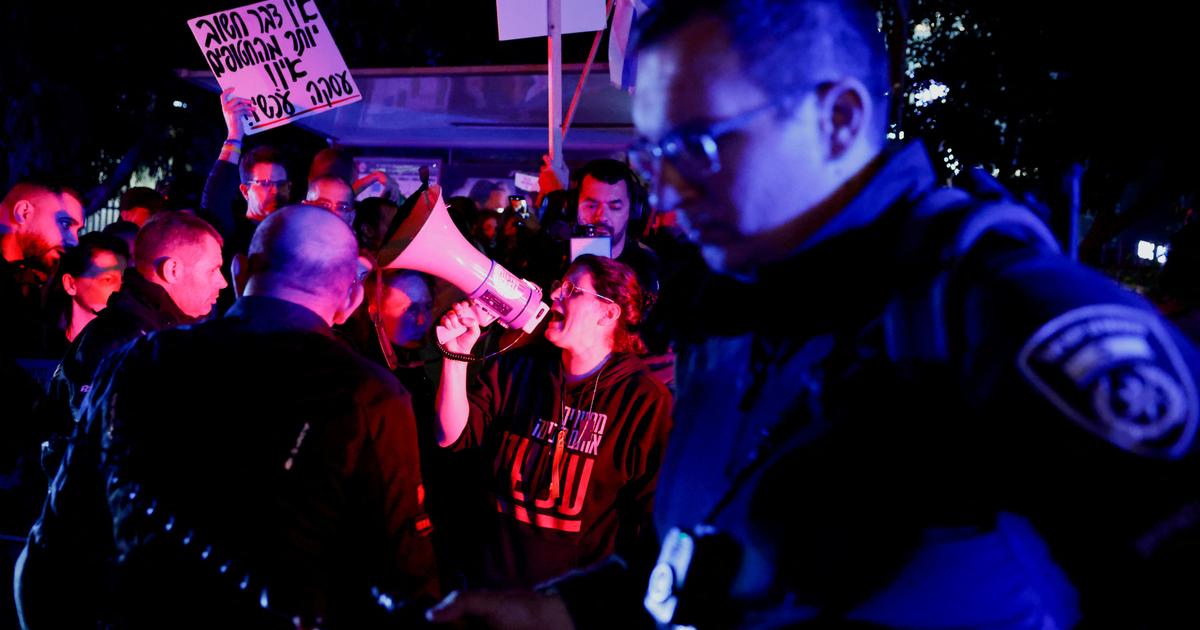Concentration to paralyze an eviction in Valencia, this Thursday Illustrated Service (Automatic) / Europa Press
Green light for the new eviction decree.
The meeting held this Wednesday between representatives of the Ministry of Transport, Mobility and Urban Agenda (the old Development, which has state powers in Housing) and the Vice-presidency of Social Rights that - led, respectively, by the PSOE and United We Can, the two souls of the coalition Executive— has come to fruition in an agreement that will be transferred as soon as possible to the Council of Ministers, as there are still some fringes missing.
In terms of evictions, the agreement reached contemplates an extension of the current norm, which only prevents someone from being thrown out of their home if they prove that they are vulnerable due to the covid, to groups that were already vulnerable before the pandemic.
The text will also contemplate the assumption of those who do not even have a title that enables them to occupy the house where they live (that is, they occupy it without having a rental contract or a property title), although in this case the stoppage of the eviction will be temporary and will only apply if the property belongs to a large owner (companies or individuals with more than 10 urban properties, without taking into account storage rooms or garages).
For those who do have a contract, the procedure will be similar to the one that already exists.
When the landlord requests the eviction of the tenant, the tenant may claim economic vulnerability before the judge.
If he proves it through a report from social services or with the required documentation (now, for example, a situation of dismissal or ERTE can be alleged after the start of the first state of alarm), the tenant may not be expelled from the housing at least until the current state of alarm ends, which is scheduled to happen on May 9.
What happens then with those who occupy a home without a contract?
There the decree will distinguish based on whether the owner is a large homeowner or if he is a small owner.
Sources from the Ministry of Transportation point out that this distinction makes sense because the assumption mainly affects large homeowners and because in the case of small owners, the lack of income can also lead to a situation of vulnerability.
To stop the eviction in these cases, the judge must prove the economic vulnerability of the occupant of the house through a report from social services.
And you can do it, always within the state of alarm, for a maximum of three months.
That period is understood to be sufficient for the Administrations to find an alternative housing solution for the person to be evicted, although it remains to be seen how that would be guaranteed.
In any case, pressure will be put on the autonomous communities, which have transferred the competence in Housing, so that with the funds of the state plan, also expanded as a result of the health emergency, they get to work to guarantee housing for people vulnerable.
It will not be easy, because with 2.5% of all homes the social park in Spain is one of the smallest in Europe.
The decision to expand the anti-eviction regulations that was approved in May and then extended twice (currently in force until January 31) fulfills one of the pretensions of United We Can, which came to present an amendment to the Budgets to achieve it.
This maneuver was not successful in Parliament, but it has come to fruition at the negotiating table, where "legislative technique issues" and other details remain to be defined.
One of them, no less, is the prohibition of cutting off basic supplies (water, electricity and gas) that the Pablo Iglesias formation also wants the decree to contemplate.
In that case, there is no agreement yet because the talks are going in another way.
It is not a competence of Transport but of Ecological Transition, another Ministry also directed by the socialist government quota, in this case by Teresa Ribera.
This prohibition was contemplated in the first months of the pandemic, then with the approval of the main energy companies, but in the extension of the so-called social shield that was agreed in September it ceased to appear.
Since then, Podemos has asked for its recovery.

/cloudfront-eu-central-1.images.arcpublishing.com/prisa/R6JGD2ZZ2REUKNCAQU266HOBSI.jpg)
/cloudfront-eu-central-1.images.arcpublishing.com/prisa/D3KKZZA5HZBEDA4TSYE7XVGSKQ.jpg)












